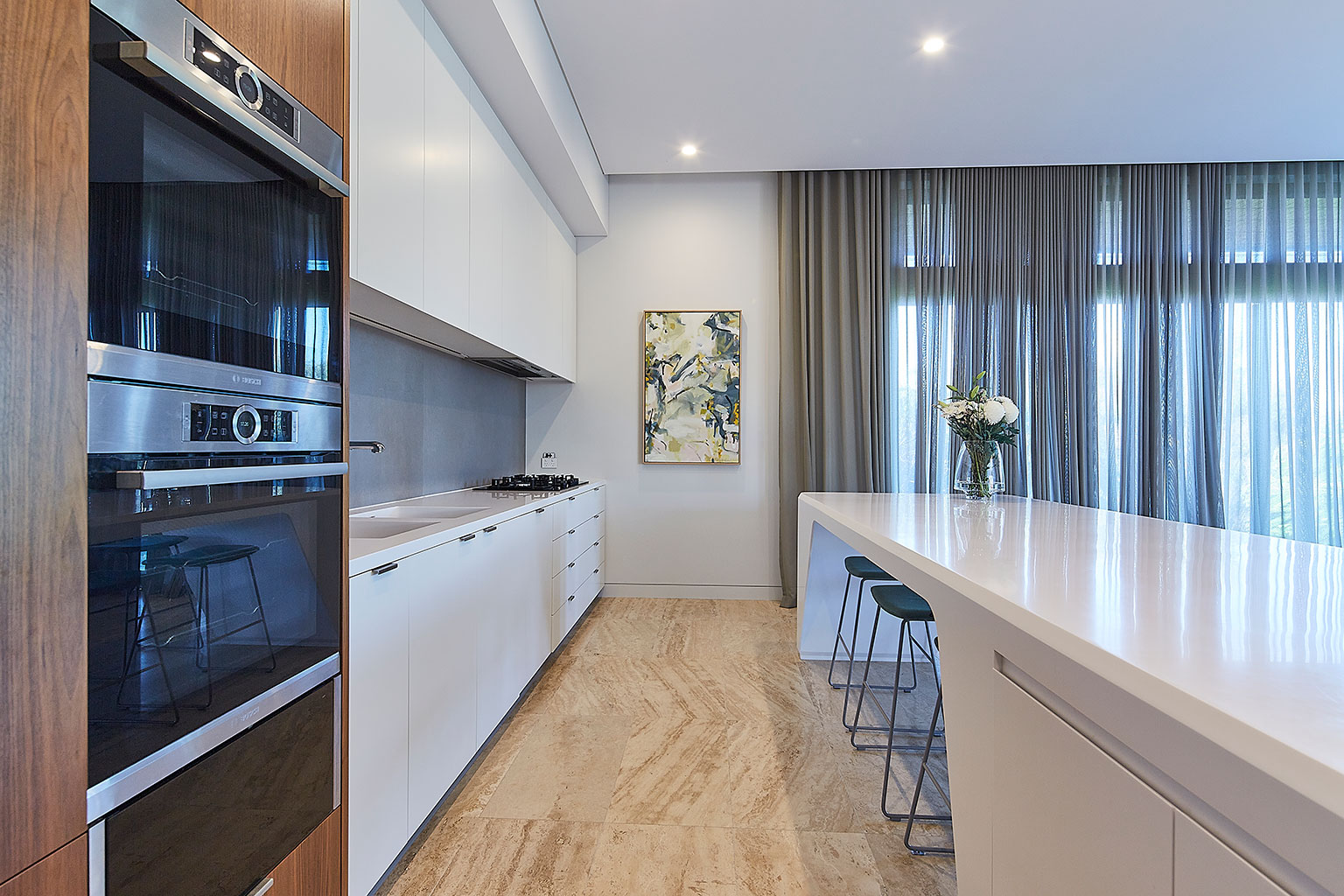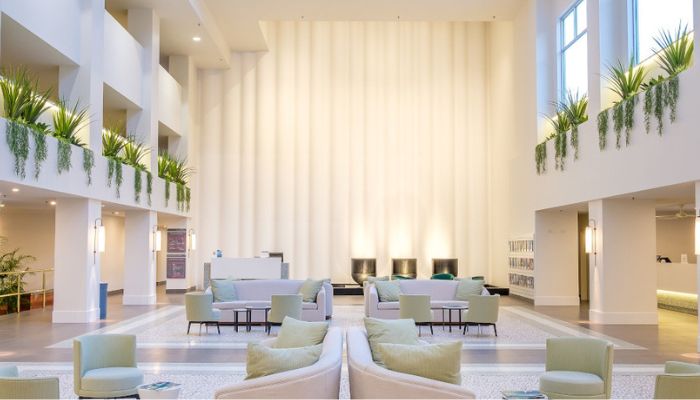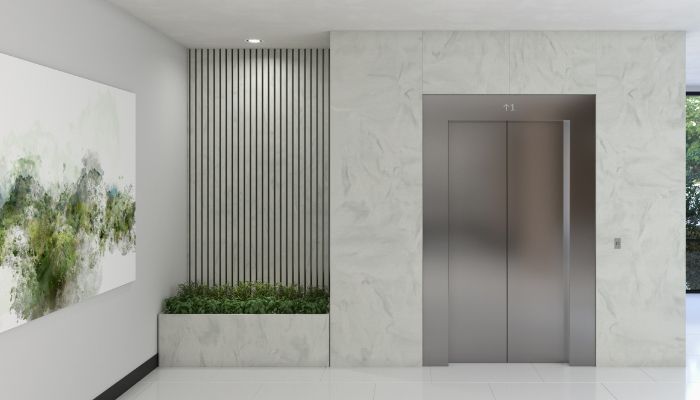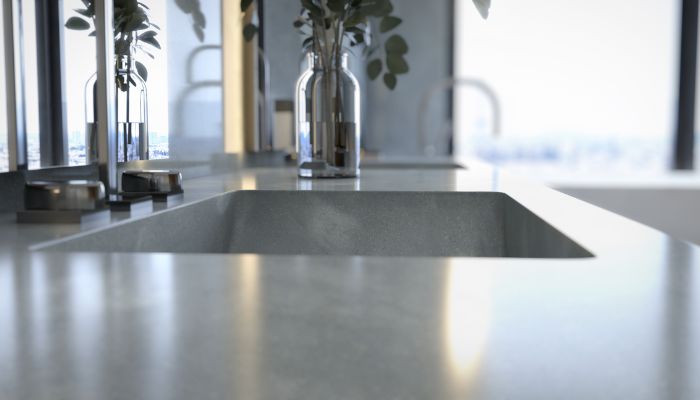Within the realms of interior design and architecture, the selection of materials plays a pivotal role in shaping both the aesthetics and functionality of a space. Among these materials, solid surface has garnered considerable acclaim for its adaptability and robustness. This article delves into the origins, composition, fabrication, applications, and the market-leading brand, Corian®, within the realm of solid surface.
- Invention and Origins: The advent of solid surface traces back to 1967, pioneered by DuPont. Conceived by chemist Donald Slocum and industrial designer Frank Low, this innovative material was christened “Corian“.
- Composition: Solid surface is essentially an amalgamation of acrylic polymer and natural minerals, such as aluminium trihydrate sourced from bauxite ore. The harmonious fusion of these elements produces a homogeneous, non-porous surface of remarkable durability.
- Ingredients: Key components in solid surface include acrylic resin, natural minerals, colour pigments, and, in some instances, fire retardants. The specific composition may vary among manufacturers, contributing to the distinct characteristics of each brand.
- Pricing and Affordability: The cost of solid surface fluctuates based on factors like brand, colour, and thickness. While generally more economical than natural stone alternatives such as granite or marble, it might surpass the cost of laminate. Nevertheless, its enduring durability and minimal maintenance often justify the initial investment.
- Fabrication Process: Solid surface distinguishes itself in the fabrication realm due to its mouldable nature. The thermoforming process, involving the application of heat to render the material pliable, facilitates the creation of sinks, curves, and intricate designs. This flexibility provides designers and homeowners with a broad spectrum of creative possibilities.
- Tools Used in Fabrication: Fabricating solid surface necessitates specialised tools, including routers, saws, and thermoforming equipment. These tools empower craftsmen to cut, shape, and seamlessly join the material, ensuring a refined and visually appealing end product.
- Applications: Solid surface serves various purposes, making it a sought-after choice for both residential and commercial settings. Common applications encompass kitchen benchtops, bathroom vanities, wall cladding, reception desks, public bathrooms and surfaces within healthcare facilities. Its non-porous attributes render it suitable for environments where hygiene is paramount, such as hospitals and laboratories.
- Corian®: A Market Leader: Corian®, as the pioneering brand in the realm of solid surface, has become synonymous with quality and innovation. Noted for its extensive colour palette, seamless integration, and exceptional durability, Corian has solidified its position as a market leader. Corian® continually evolves, introducing new designs and technologies to meet the evolving demands of the design industry.
- Safety Considerations: One notable aspect of solid surface is its safety profile. It is safe to work with during fabrication and poses no harm in domestic settings. Notably, solid surface contains zero silica content, a crucial factor in ensuring a healthy and hazard-free environment for both craftsmen and homeowners.
Corian® Solid surface, with its blend of versatility, durability, and aesthetic appeal, has become a staple in contemporary design. From its inception in the 1960s to its pervasive use in various industries today, Corian® Solid Surface continues to influence the way we approach interior spaces. As technology advances and manufacturers persist in pushing the boundaries of innovation, we can anticipate even more captivating developments in the years to come.
Corian is distributed in Australia by CASF. If you would like to learn more, or to book a CPD or training session, please contact us.






